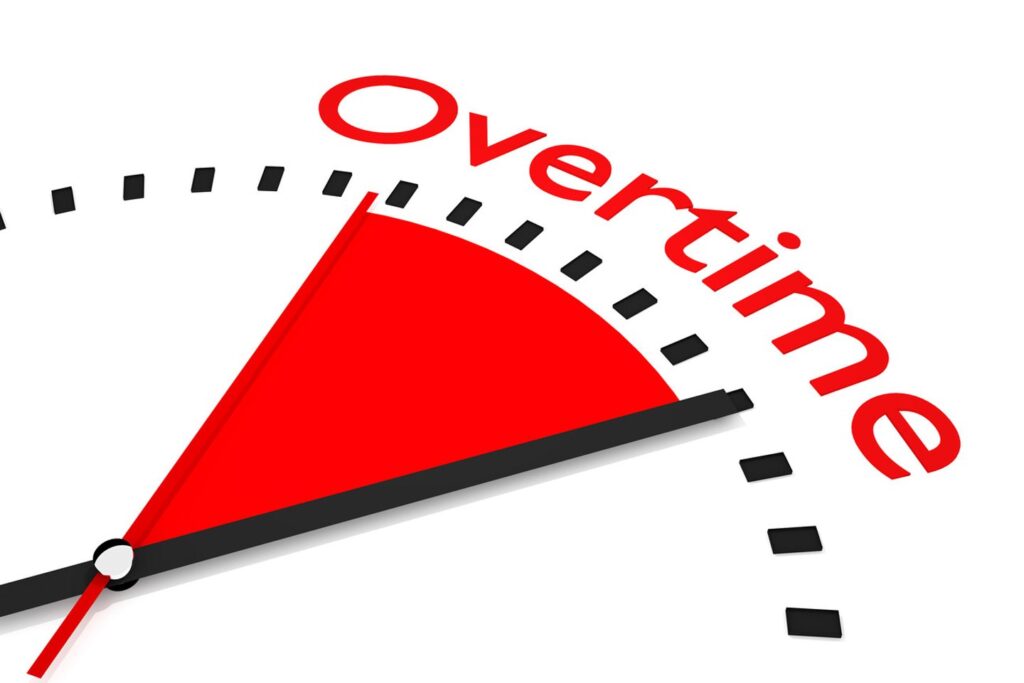THE U.S. DISTRICT Court for the Eastern District of Texas on Nov. 15 struck down the Department of Labor’s rule raising salary thresholds for overtime exemption under the Fair Labor Standards Act. The ruling vacates increases from $35,568 to $43,888 on July 1, with a planned rise to $58,656 by Jan. 1, 2025. Hotel associations, including AAHOA and the American Hotel & Lodging Association, welcomed the decision.
The recent federal court ruling to overturn a proposed increase in overtime salary thresholds has stirred discussions across the hospitality industry. The overtime rule decision directly affects labor-intensive sectors like hotels and restaurants, where wage management is critical for operational success.
This article explores the implications of this decision for hospitality employers, its impact on employees, and how businesses can adapt to ensure compliance while maintaining profitability.
What Was the Proposed Overtime Rule?
The U.S. Department of Labor (DOL) sought to raise the salary threshold for overtime pay eligibility, aiming to extend overtime benefits to more workers. However, the court deemed the increase excessive and opted to maintain lower thresholds.
This ruling primarily affects salaried workers, whose eligibility for overtime pay depends on their income levels. Hospitality employers welcomed the decision, citing concerns over rising payroll expenses and operational difficulties.
Why the Ruling Matters for Hospitality
Financial Stability for Employers
The hospitality industry operates on tight margins. A sudden increase in wage obligations could have led to reduced hiring, shorter hours, or higher prices for customers. By keeping the thresholds low, the ruling alleviates immediate financial pressures for businesses. AAHOA supports the decision to overturn the rule, estimating it would cost each member up to $18,000 over six months, adding $360 million in expenses for its 20,000 members.
“This decision is a major victory for small business owners in the hospitality industry,” said Miraj Patel, AAHOA chairman. “The proposed changes would have placed an undue financial burden on our members, threatening their businesses and ability to create jobs.”
Workforce Management Challenges
While employers benefit, the decision has drawn criticism from workers who argue that the lower thresholds limit opportunities for overtime pay. For employees in hospitality, where shifts are often irregular and lengthy, this ruling could mean extended hours without added compensation.
Internal Link: To explore workforce management strategies in hospitality, visit Hoteliers Community.
Implications for Hospitality Employers
Compliance is Still Key
Even with lower thresholds, businesses must comply with existing labor laws. Employers should monitor employee work hours and ensure accurate wage calculations to avoid penalties.
Opportunity for Strategic Planning
The ruling offers hospitality employers breathing room to reevaluate their staffing models and wage structures. Businesses can now focus on improving efficiency without the immediate burden of increased payroll expenses.
Transparency with Employees
Maintaining open communication with staff is critical. Employers should explain wage policies clearly to foster trust and reduce dissatisfaction among workers.
Pros and Cons of the Court’s Decision
Advantages for Employers
- Cost Management: No immediate need to adjust payroll structures.
- Flexibility: Easier to manage fluctuating labor demands.
- Consistency: Prevents abrupt changes to existing practices.
Disadvantages for Employees
- Limited Earnings Growth: Fewer workers qualify for overtime pay.
- Workload Concerns: Employees may face increased hours without additional compensation.
Long-Term Implications for the Hospitality Industry
Employer Adaptation
While the ruling provides short-term relief, hospitality businesses must prepare for potential regulatory changes. Labor laws evolve, and employers need to stay informed to avoid future disruptions.
Employee Retention Strategies
To mitigate dissatisfaction, employers should focus on non-wage benefits, such as career development opportunities, flexible schedules, and improved working conditions.
Industry-Wide Collaboration
Advocacy groups and hospitality associations should work together to propose balanced policies that address both employer and employee concerns.
How Hospitality Employers Should Respond
Conduct Internal Audits
Review current wage practices to ensure compliance with overtime laws. This step helps identify gaps and minimizes the risk of legal issues.
Invest in Technology
Time-tracking and payroll systems can simplify compliance and improve efficiency. Such tools are particularly valuable for businesses managing large workforces.
Stay Informed
Keep track of legislative updates that could impact wage regulations. Being proactive ensures you’re prepared for future changes.
Focus on Employee Engagement
Satisfied employees are more likely to stay with your business, reducing turnover costs. Regular feedback sessions and transparent communication can help address staff concerns.
The Future of Wage Regulations
The overturned overtime rule is part of a larger conversation about fair wages and labor practices. While the court’s decision temporarily eases pressure on employers, it also highlights the need for balanced policies that protect workers without overburdening businesses.
For the hospitality industry, this means adopting sustainable practices that prioritize both profitability and employee well-being. By fostering a supportive work environment, businesses can navigate these challenges successfully.
For expert advice on improving workplace policies, visit Hoteliers Community.
Conclusion
The federal court’s decision to maintain lower overtime salary thresholds has provided relief for hospitality employers but raises important questions about wage fairness. By prioritizing compliance, transparency, and employee engagement, businesses can thrive while addressing these challenges.
Stay informed and proactive to navigate the evolving labor landscape effectively. For more insights, visit trusted resources like Hoteliers Community to stay ahead in the hospitality industry.
Meta Description: Explore how the federal court’s decision to overturn overtime rule changes affects the hospitality industry. Learn the key impacts on wage management and compliance.


